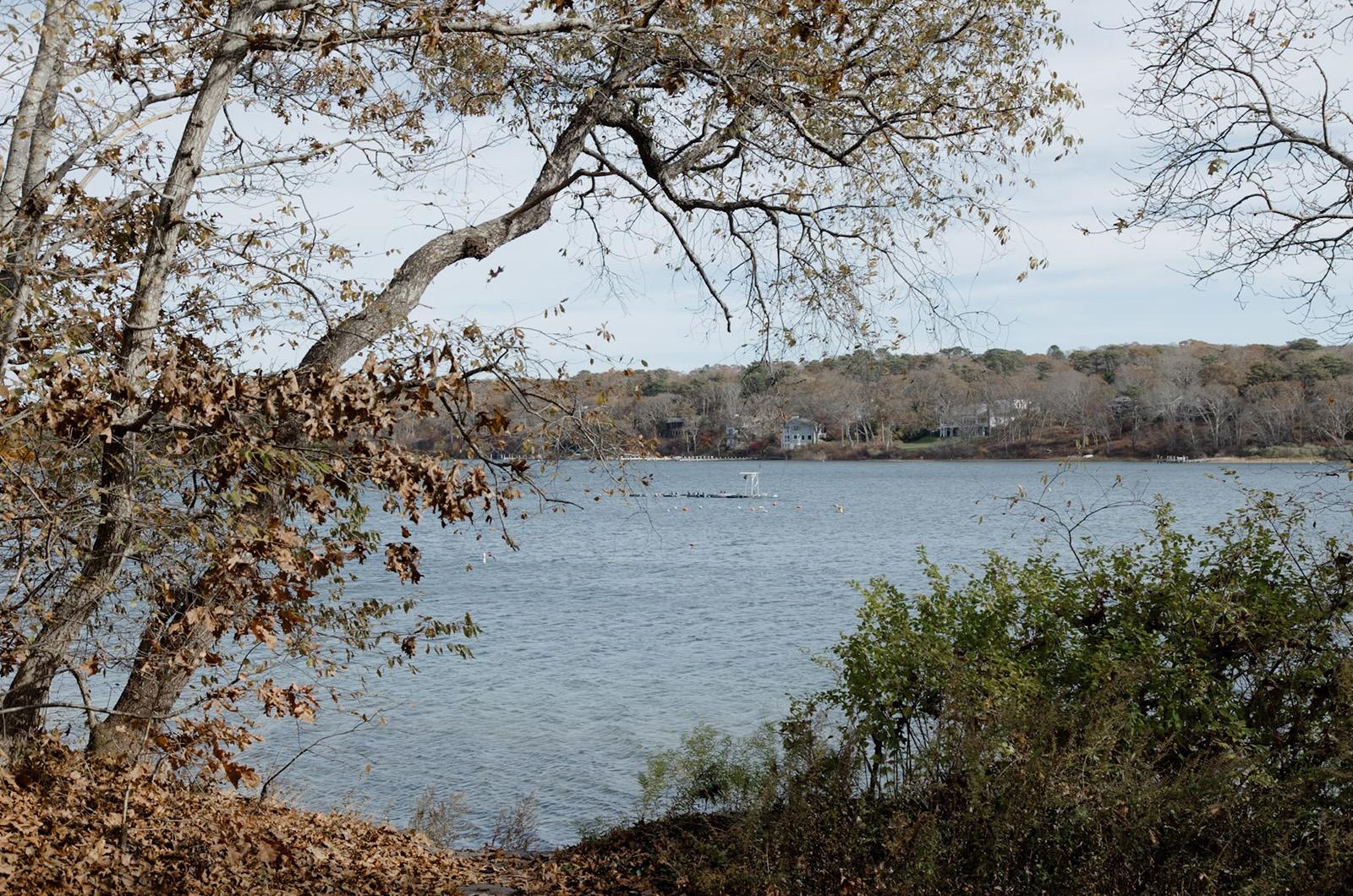Shellfish farmers in Tisbury are lobbying for changes to town aquaculture regulations, hoping to gain more flexibility in permitted growing methods for oyster farms in the Lagoon.
At a meeting of the town's natural resources advisory committee on Nov. 9, Tisbury oyster farmer Greg Martino presented revisions to the town aquaculture bylaws developed by Noah Mayrand, Jeff Canha and himself, the town’s three licensed oyster farmers.
The revisions, Mr. Martino said, would allow them to grow oysters using gear suspended in the water, rather than being restricted to growing in cages at the bottom of the Lagoon, a strategy hampered by conditions there.
“Shellfish cannot grow on the bottom of the sites we currently have,” Mr. Martino said at the meeting. “These are needs in order for aquaculture to be successful.”
The meeting came soon after Mr. Canha, who was chair of the town waterways committee before it was reformed as the natural resources committee in September, announced that his Hussleton Head Oyster Company was going out of business. In a wide-ranging interview with the Gazette earlier this month, Mr. Canha critiqued town policies and employees which, he felt, had led to the end of his business.
“Those [aquaculture] regulations...they were designed to fail,” he said, calling his dealings with the town “discouraging and disgusting.”
“Hussleton Head Oysters has been driven out of business by town politics,” he said.
Aquaculture in Tisbury was first allowed in 2019, Mr. Canha said, with growers restricted to raising their oysters in cages in set areas on the bottom of the Lagoon. The deep mud in those pond areas, Mr. Canha said, has made it nearly impossible to raise oysters.
“The town doesn’t want aquaculture,” he said.
Town shellfish constable Danielle Ewart declined to be interviewed, instead directing questions to town administrator Jay Grande.
Mr. Grande attributed the issues with aquaculture in Tisbury to “a very difficult...natural environment as well as regulatory environment to really have [aquaculture] take off.”
The Massachusetts Division of Marine Fisheries has strict regulations as to where aquaculture can take place, Mr. Grande said, including a requirement that other shellfish are not present in a prospective aquaculture area.
Mr. Martino agreed with Mr. Cahna in that the Lagoon is not conducive to growing oysters.
“The grow sites in the Lagoon are too deep and have not enough oxygen to grow the oysters,” Mr. Martino said, in an interview with the Gazette. “We’re getting almost 100 per cent mortality.”
In order to make aquaculture in those sites possible, Mr. Mayrand, Mr. Canha and Mr. Martino have proposed regulation changes to allow floating or suspended gear to cultivate oysters off the bottom.
Mr. Martino said that the changes are in line with the original vision of the regulations approved in 2019, but with the possibility of shifting based on the realities of aquaculture in town. The regulations were based on aquaculture practices in other Island towns where conditions are more amenable to growing in bottom cages. Elsewhere in the country, however, floating and suspended gear are more common practices for oyster farming.
“Those regs were not something set in stone. They were supposed to be a moving target and, in a sense, a working document,” he said.
Mr. Canha attributed many of his own troubles to alleged unfair treatment by the town shellfish constable, who he said gave preference to quahauggers over oyster growers. Mr. Canha said Ms. Ewart consulted with Bill Sweeney and Jamie Tilton, quahauggers and members of the now-defunct town shellfish committee.
Mr. Grande said Mr. Canha has brought the issue to his attention before
“The contention is that Danielle has a long association with both individuals.... He is alleging this influenced her planning and decision-making,” he said. “It’s all personalities and relationships....At a minimum, it creates a perception.”
Mr. Grande said he has asked Ms. Ewart instead to work through members of the natural resources advisory committee in the future.
Mr. Martino, meanwhile, praised Ms. Ewart’s work as constable.
“She ultimately wants to protect the pond and she has the best interest of the pond. She’s been nothing but fair to me,” he said. “I respect her job. So, I think, how you treat people, it’s also how you get treated.”
The natural resources committee responded positively to the draft aquaculture revisions at their meeting this month. Mr. Martino said he plans to bring forth final draft regulations to the committee meeting in December.
If the committee decides to recommend the changes, the revised regulations will come before the select board for approval.







Comments (1)
Comments
Comment policy »